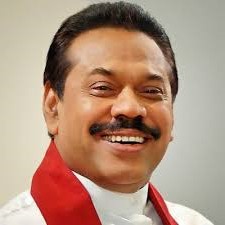Fact Check
To check this claim, first we consulted the University Grants Commission (UGC) 2018 statistics on undergraduate enrolment in universities and higher educational institutions. This provides statistics only for institutions established under the Universities Act. No. 16 of 1978, which is the main legislation governing tertiary education in Sri Lanka.
There are a number of institutions, both government and private, that don’t fall within this Act. Each of these has its own processes for recognition, accreditation, and establishment and maintenance of standards (see additional notes below). On the UGC statistics, 62,907 of the 97,815 individuals enrolled in higher educational institutions in 2018 were women – that is, 64.3%. The PM only claims that women’s enrolment is above 50%, which makes him comfortably correct in respect of the institutions within the Universities Act.
FactCheck was not able to find published statistics on enrolment in universities/higher educational institutions outside the Universities Act FactCheck attempted to corroborate the UGC statistic using Sri Lanka’s Labour Force Statistics (LFS) data. Because the Department of Census and Statistics does not make survey data freely available, FactCheck was only able to check the 2014 LFS data set, and not the latest 2017/18 surveys. In the 2014 survey, women accounted for just over 57% of those reporting themselves as enrolled in universities. This statistic excludes individuals who report themselves as enrolled in schools, other educational institutions or vocational/technical institutions. Despite the absence of a definitive data source that covers all institutions in 2018, the combination of data points checked allowed for the conclusion that the prime minister’s claim is correct.
Therefore, we classify the prime minister’s statement as TRUE.
Additional Notes:
Institutions in Sri Lanka’s tertiary education sector can be categorised as follows:
a) Higher educational institutions (state universities): There are 15 state universities in total.
b) Higher educational institutes (state-affiliated institutions): These institutes award certificates, diplomas and degrees from their parent universities. There are at least 9 such institutions in total. Examples of this type of institute include the Institute of Indigenous Medicine, University of Colombo School of Computing, Gampaha Wickremarachchi Ayurveda Institute and the Institute of Technology University of Moratuwa.
c) Government non-UGC institutions: Not all government-run institutions fall under the University Grants Commission (UGC), which is under the Ministry of Higher Education. These institutions fall directly under a range of ministries e.g. the General Sir John Kotelawala Defence University (managed by the Ministry of Defence). There are at least 9 such institutions in total.
d) Private institutions with degree-awarding status: These are private institutions
granted a degree awarding status in Sri Lanka, recognised under the provisions of Section 25A of the Act (incorporated under Amendment Act No. 7 of 1985) e.g. the Sri Lanka Institute of Information Technology (a privately managed UGC-approved degree awarding institution). There are 20 such institutions in total.
e) Foreign-degree awarding institutes: These include institutions such as Imperial Institute of Higher Education, which offers degree programs from the University of Salford as a ‘university partner’, and which students must register with to obtain their degree from the University of Salford. There are also institutions which provide services to students to aid them in obtaining foreign degrees but are not mandatory for students to attend. e.g. Royal Institute, which offers tuition support for select University of London International Programmes.
Further information on the institutions in the tertiary education sector and can be found in the Verité Research’s report Private Sector Participation in Sri Lanka’s Tertitary Education: A review of information and data (2017) available at: https://www.veriteresearch.org/publication/private-sector-participation-in-sri-lankas-tertiary-education/
*FactCheck’s verdict is based on the most recent information that is publicly accessible. As with every fact check, if new information becomes available, FactCheck will revisit the assessment.
Sources
- University Grants Commission, Statistical Report 2018 – Student Enrolment, available at: https://www.ugc.ac.lk/downloads/statistics/stat_2018/Chapter3.pdf
- University Grants Commission, Other Government Universities, available at: https://www.ugc.ac.lk/en/universities-and-institutes/other-government-universities.html
- University Grants Commission, Other Recongnised Degrees, available at: https://www.ugc.ac.lk/en/universities-and-institutes/other-recognized-degrees.html
- For the original article: Divaina, 2 September 2019, available at: http://epaper.divaina.com/index.php?option=com_flippingbook&view=book&id=5391


